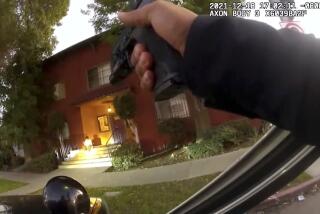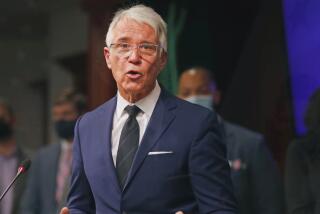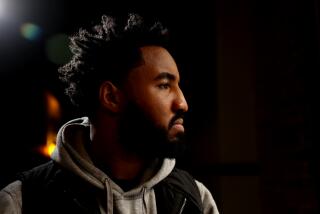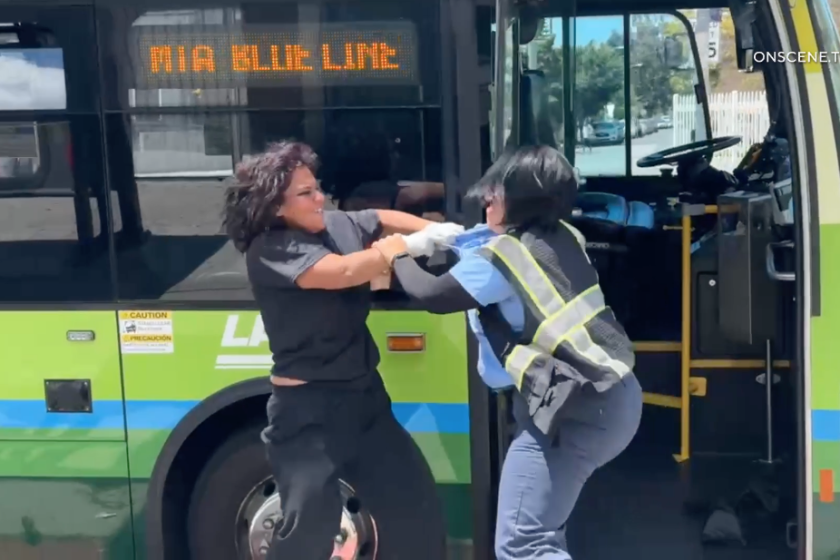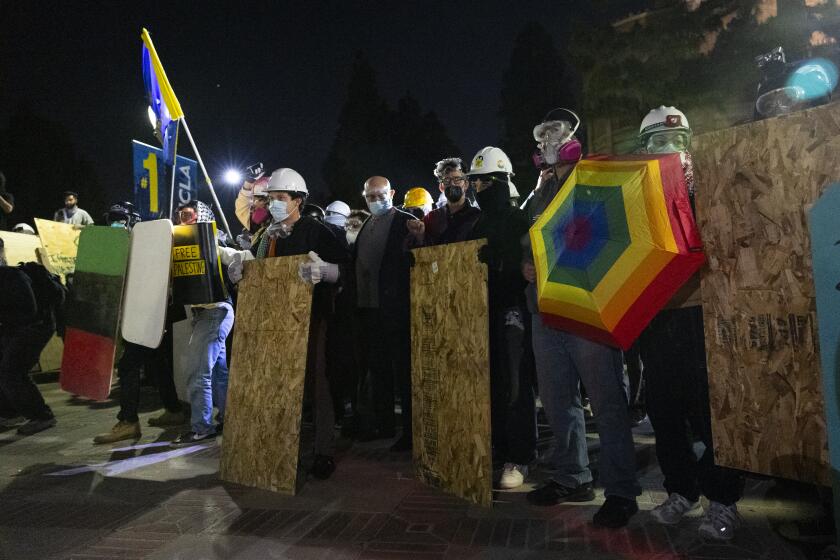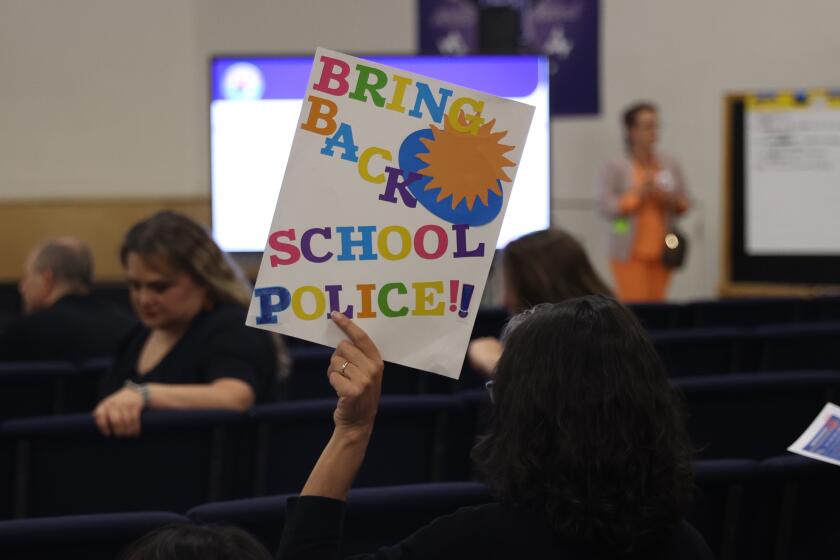Demonstrators call on D.A. to decide whether to prosecute LAPD officers who shot Ezell Ford
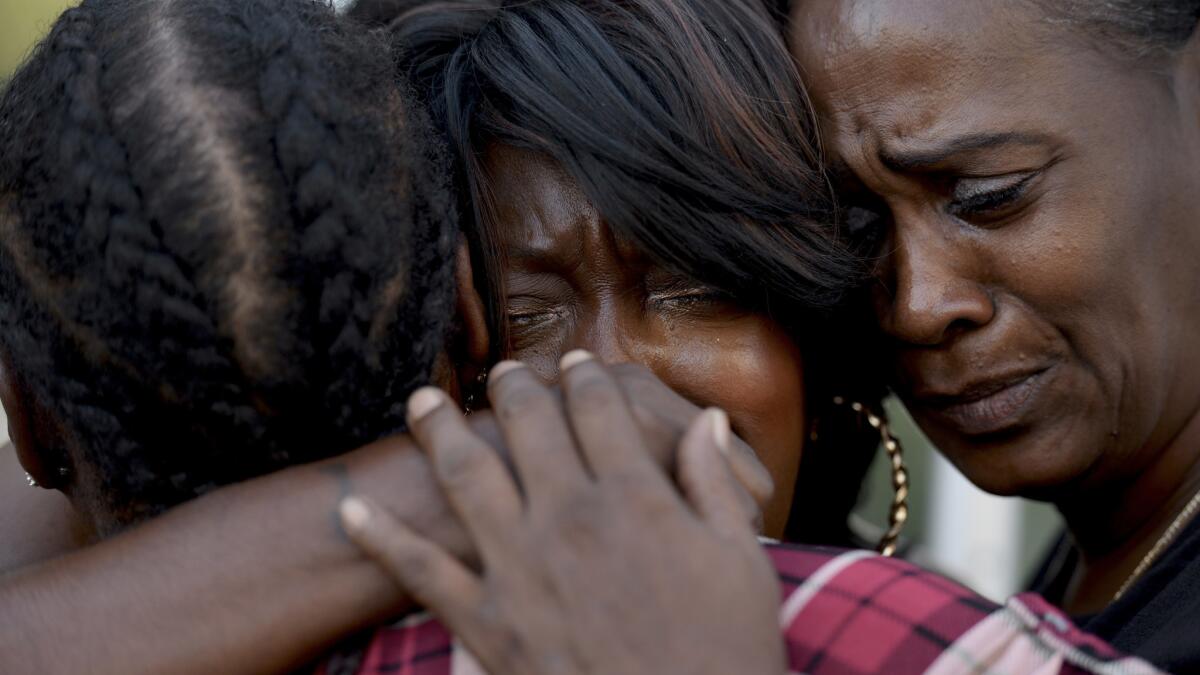
It was two years ago when Ezell Ford, a mentally ill black man, was killed by two Los Angeles police officers in South L.A., sparking protests and debate over the use of deadly force by police.
A group of protesters on Thursday marked the second anniversary of the killing by gathering outside the downtown Los Angeles office of Dist. Atty. Jackie Lacey, saying they were done waiting for her to decide whether to file criminal charges against the officers and calling on her to prosecute them.
Standing outside the county’s Hall of Justice, the protesters held a large yellow banner that read “D.A. Lacey file charges now!.”
Some held signs that read “D.A. Lazy, time for Justice...” and “We demand charges...”
Organizer Keyanna Celina, a member of Coalition For Community Control Over The Police, a grass-roots group, used a microphone to address more than a dozen demonstrators.
“It’s been two years,” Celina said. “Justice delayed is justice denied.”
Ford’s family, who was attending the event, also spoke out against the district attorney for not yet finishing the investigation.
“It’s been two long, horrible years,” said Ford’s great-aunt, Mahalia Clark, 68. “Two years they have been investigating Ford’s death.”
Tritobia Ford, Ezell’s mother, broke down in tears as she expressed her frustration with the delay. She said she wants a decision to be announced so she can move on.
“It’s not fair to have a justice system that won’t let us know what is going on,” Ford said. “Let us know something, it’s not fair.”
The district attorney’s office said in a written statement that it was dedicated to conducting an independent and thorough investigation into the shooting. The LAPD’s investigation was turned over to prosecutors in May 2015. Since then, prosecutors have located and interviewed additional witnesses and consulted experts on a variety of forensic evidence.
The district attorney’s office intervened when lawyers for Ford’s family in a wrongful-death lawsuit filed depositions of witnesses who might not have been interviewed by police. The depositions were under seal, preventing prosecutors or the public from viewing them. In January, the district attorney’s office asked a federal judge to unseal those records for prosecutors. A judge signed a protective order allowing the records to be turned over in late May, court documents show.
“That legal battle took almost six months, but the documents received are vital to our legal analysis,” Lacey said in the statement. “We must evaluate every witness account so that we may reach a fair result for all of the parties involved.”
Ford’s death became a local rallying cry against killings by police, particularly those of black men, and strained relations between police and African Americans in South Los Angeles. Ford, who had been diagnosed with bipolar disorder and schizophrenia, died two days after the fatal police shooting of Michael Brown in Ferguson, Mo., which prompted nationwide demonstrations and heated debates about race and policing.
Ford was killed on Aug 11, 2014. According to the LAPD, Officers Sharlton Wampler and Antonio Villegas got out of their car on West 65th Street to talk to Ford, but the 25-year-old continued walking and made suspicious movements before tackling one officer and reaching for his gun, prompting both officers to open fire.
Last year, the Los Angeles Police Commission found that Wampler’s use of deadly force violated LAPD policy. The commission found that his handling of the encounter was so flawed that it led to the fatal confrontation.
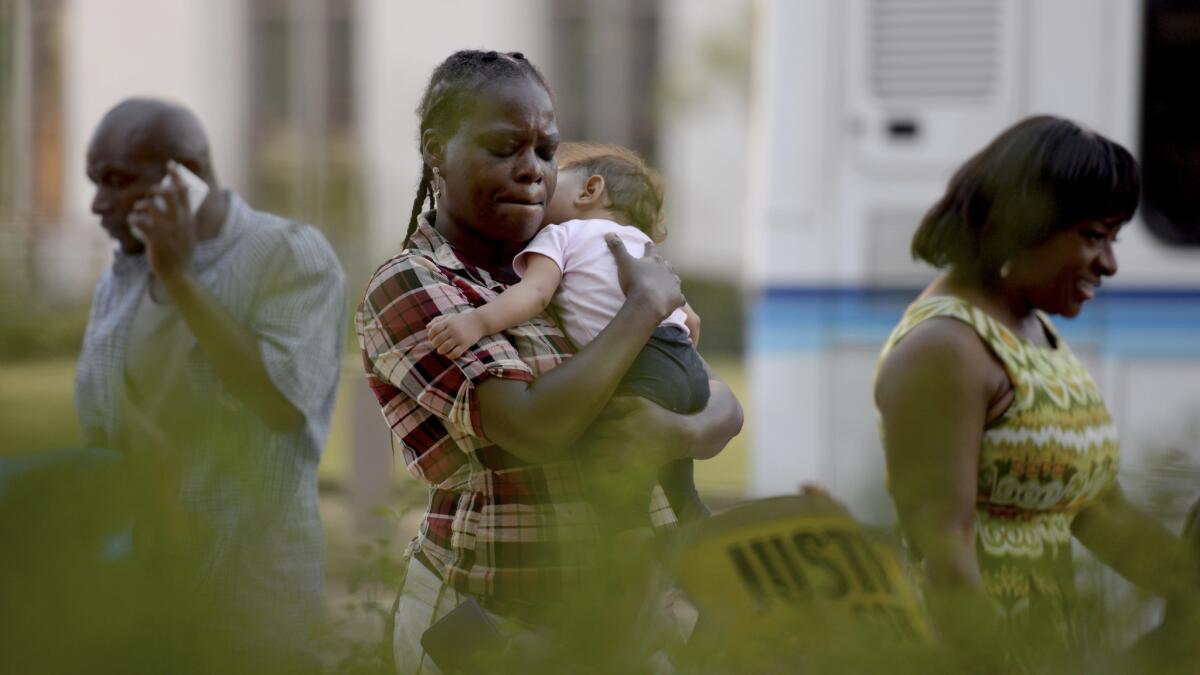
The panel disapproved of Villegas’ initial decision to draw his weapon early on in the confrontation but said he ultimately was justified in shooting Ford.
The two officers recently sued the city, alleging they had been unfairly kept on desk duty because of the shooting.

Watch the Los Angeles Police Commission’s mixed ruling in the controversial killing of Ezell Ford, a mentally ill black man.
For more Southern California news, follow @latvives on Twitter.
ALSO
Gun and video may provide answers in Jesse Romero shooting, police say
Courts overturn sentences for two California death row inmates and uphold another
Four injured when truck drives through MacArthur Park; the driver is released by police
More to Read
Start your day right
Sign up for Essential California for news, features and recommendations from the L.A. Times and beyond in your inbox six days a week.
You may occasionally receive promotional content from the Los Angeles Times.
